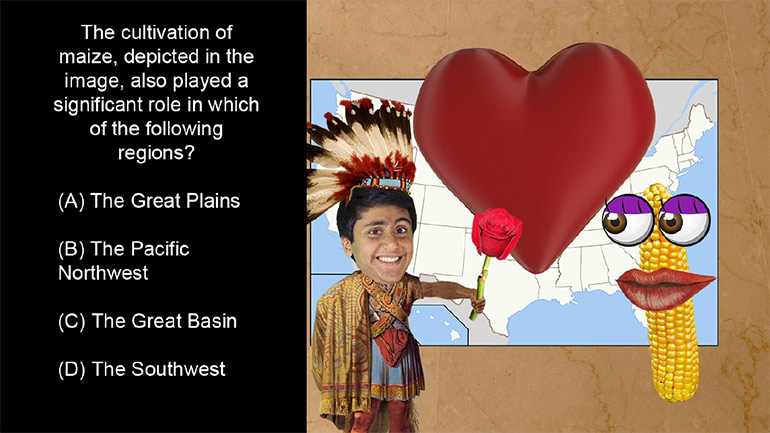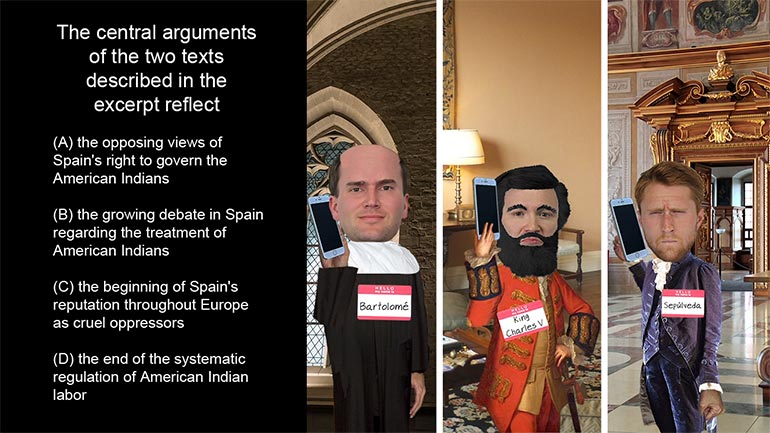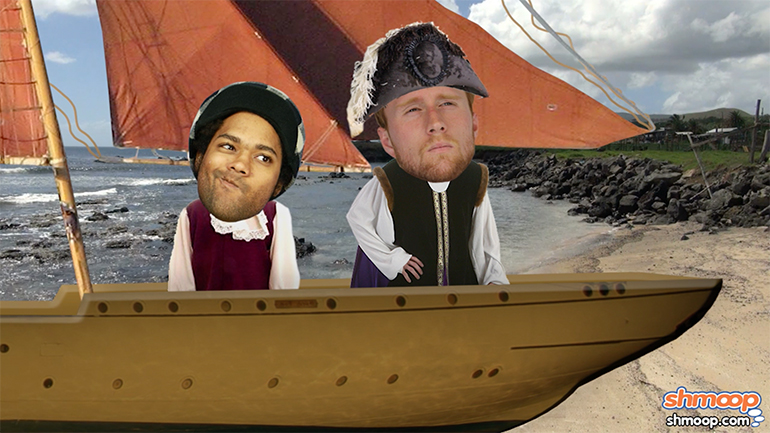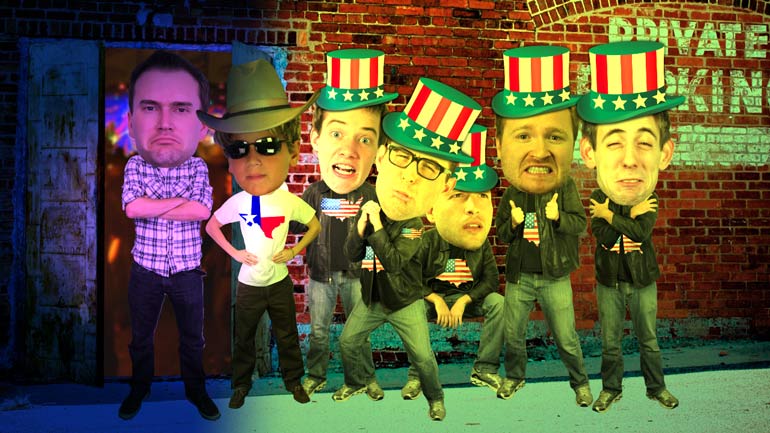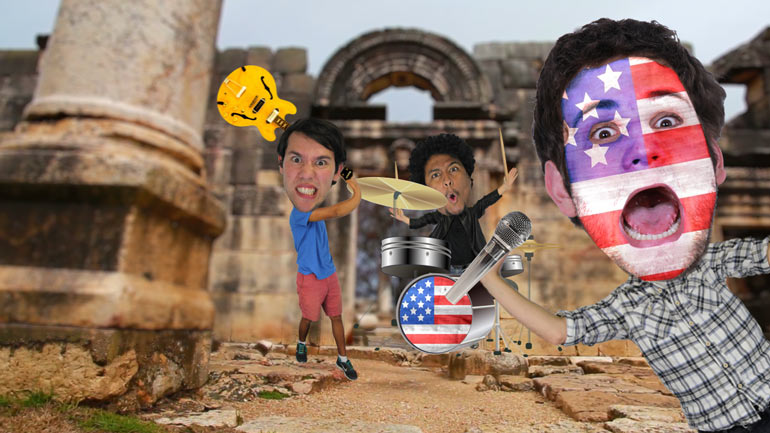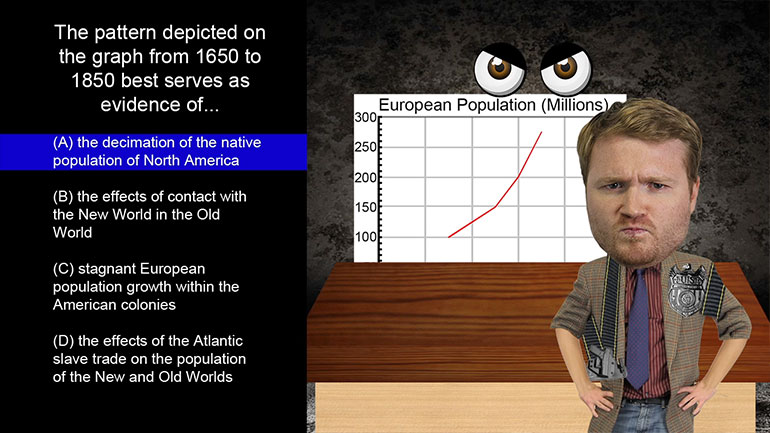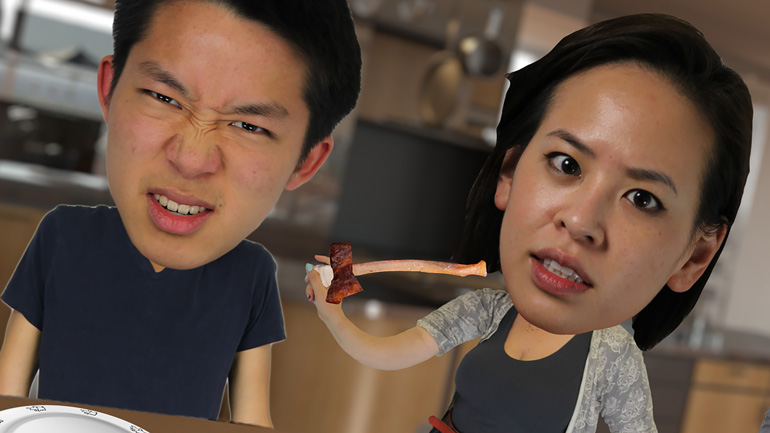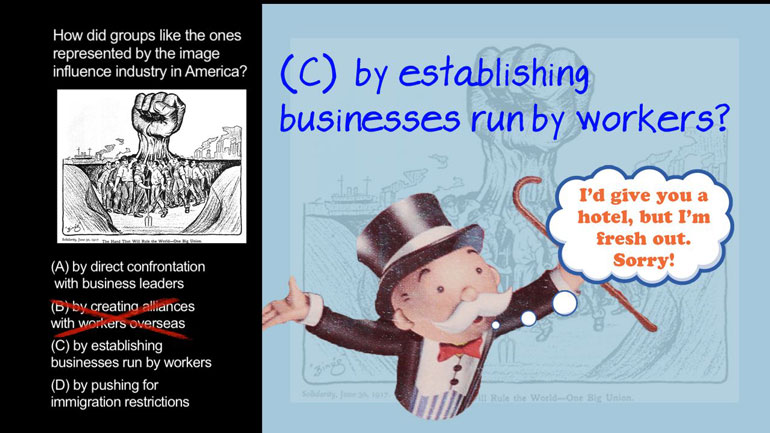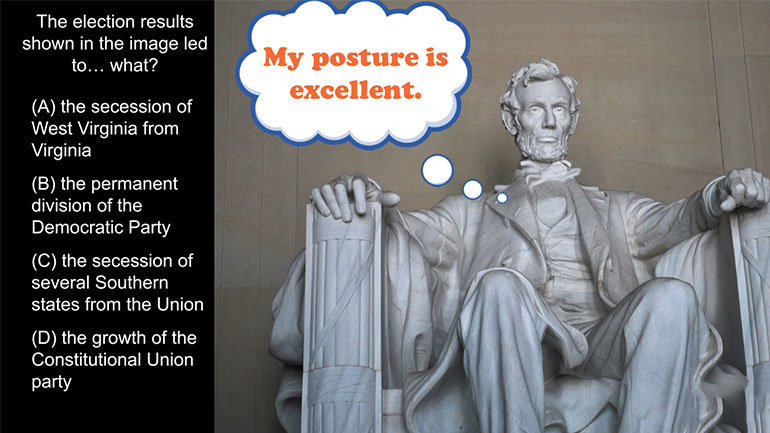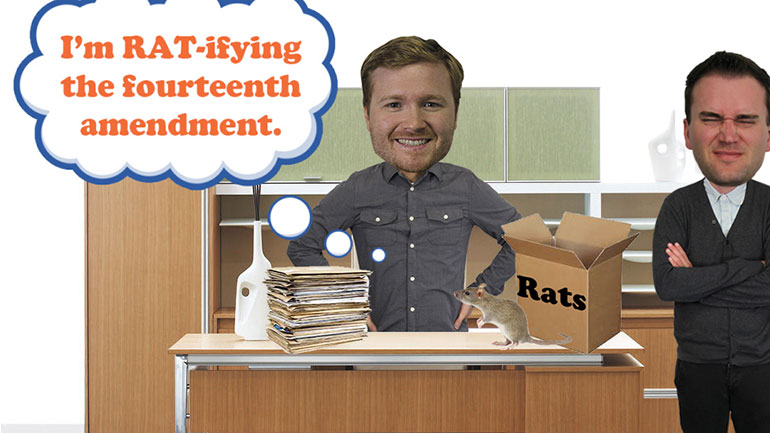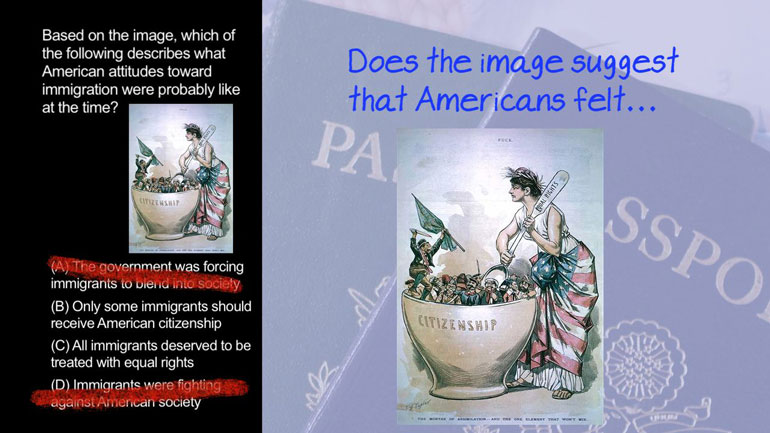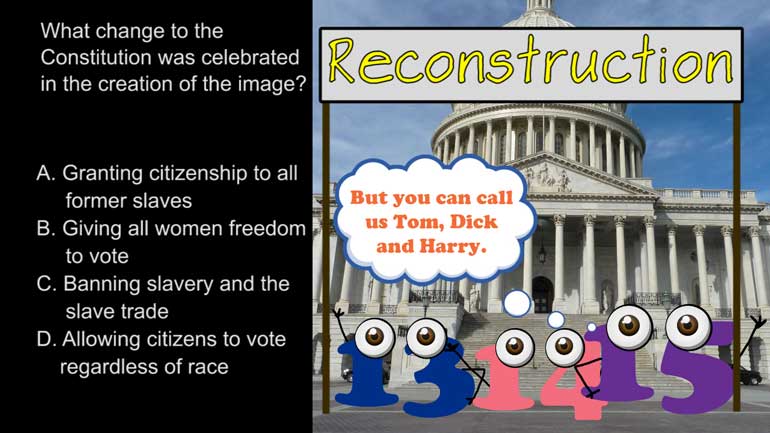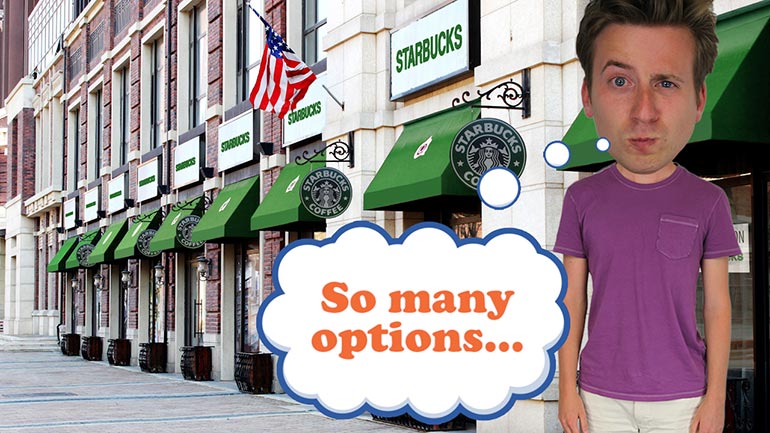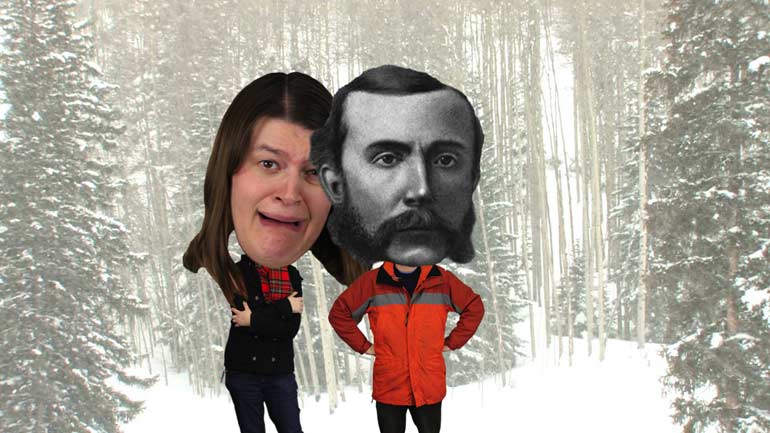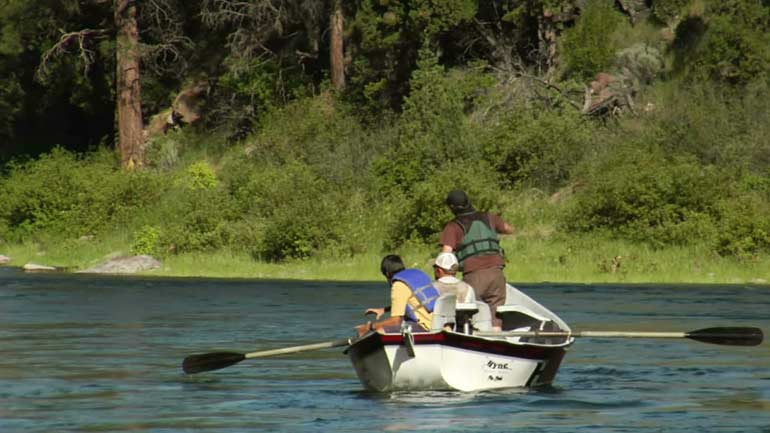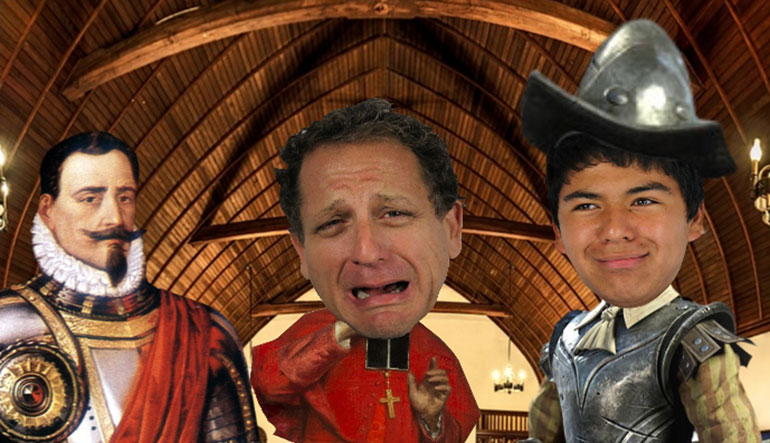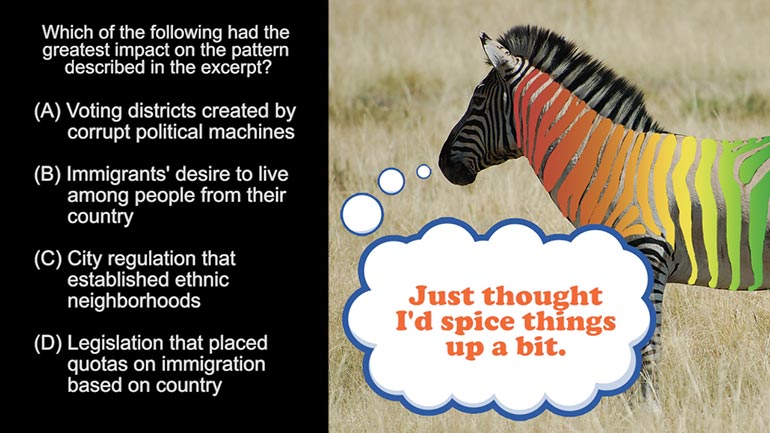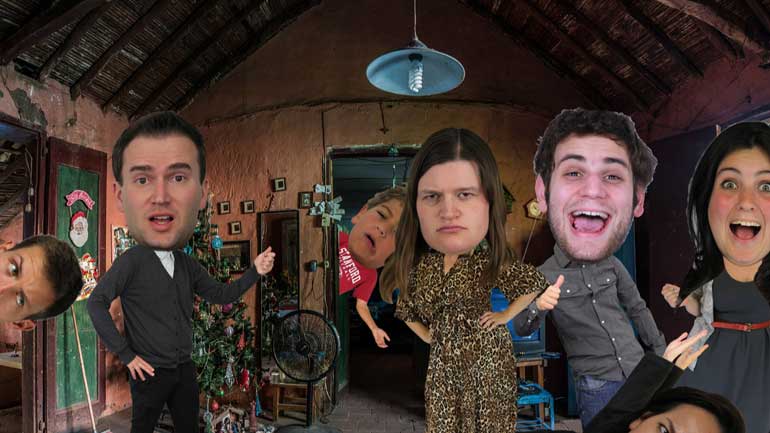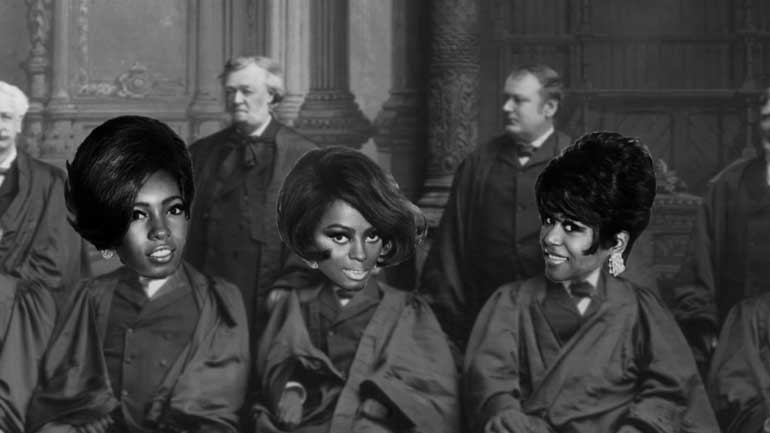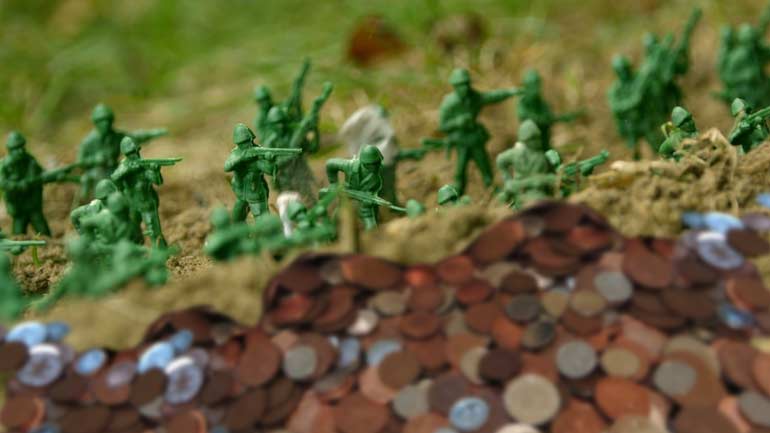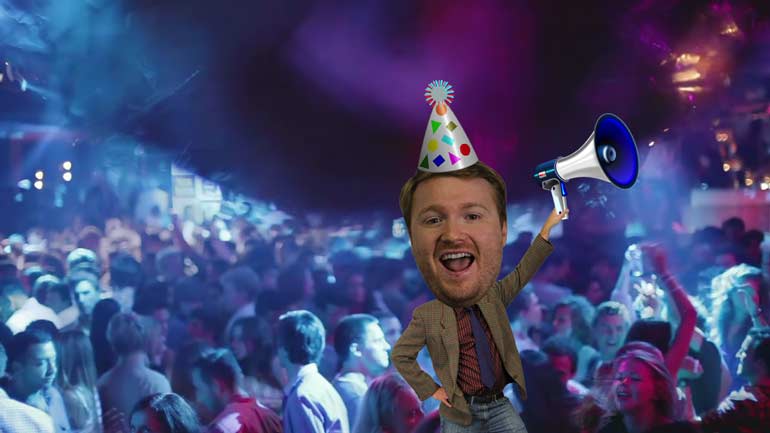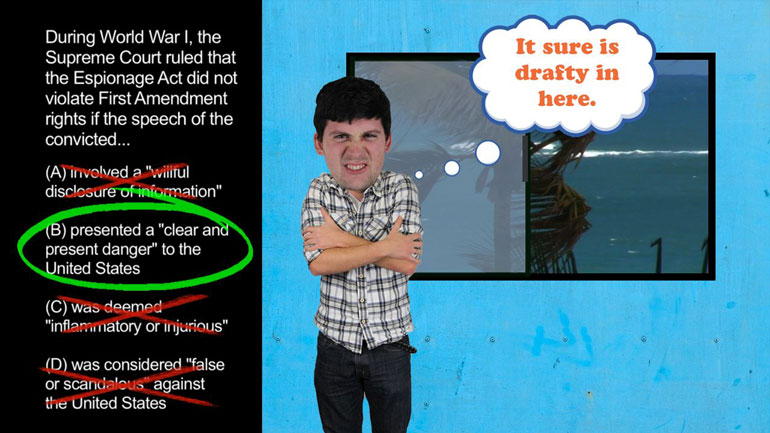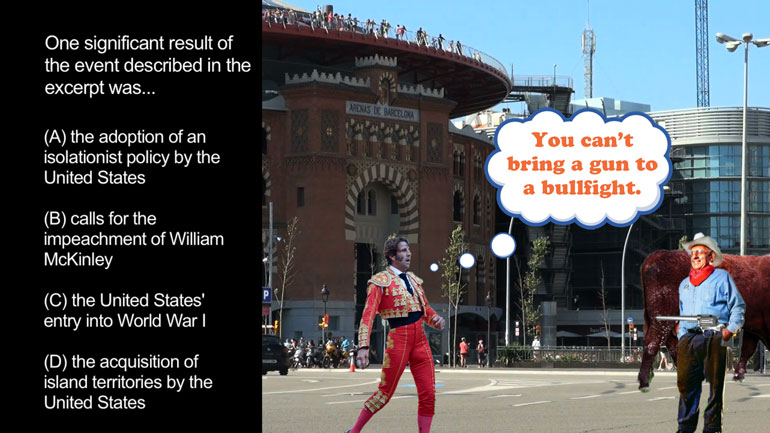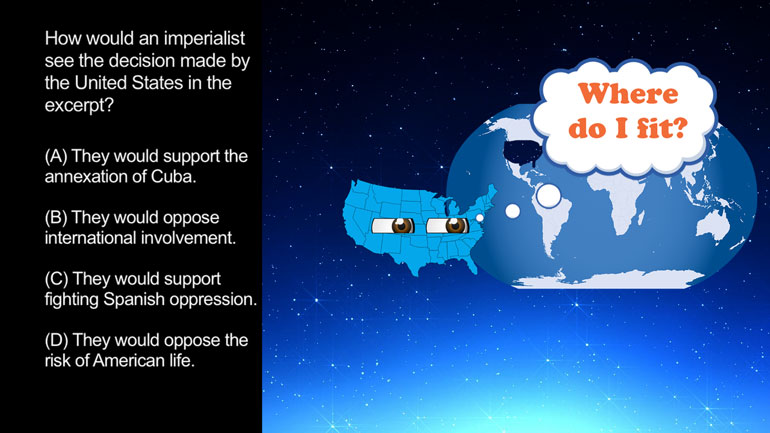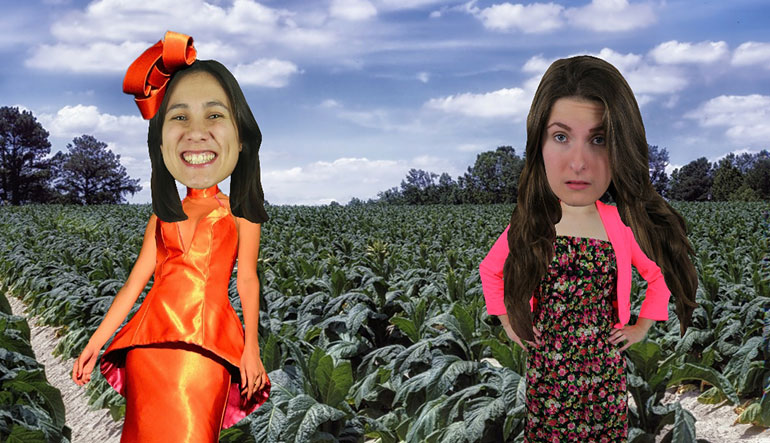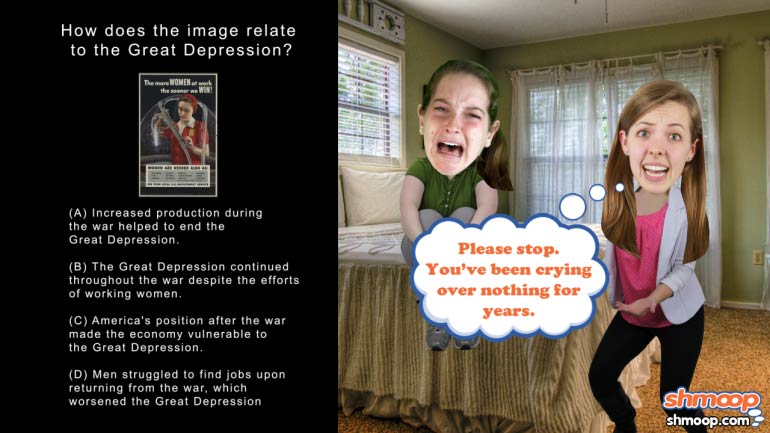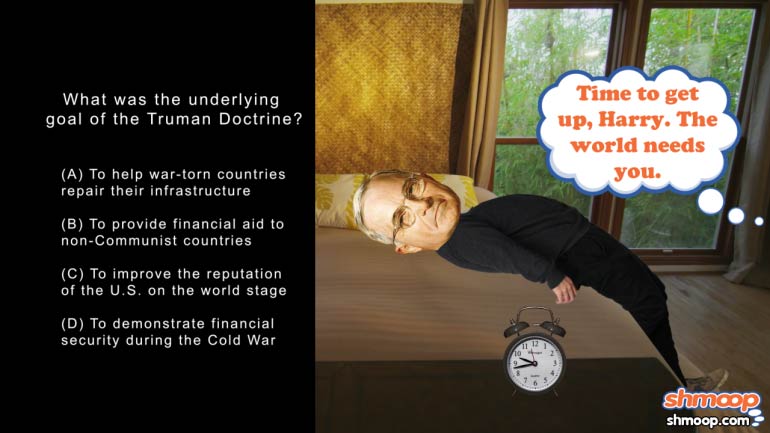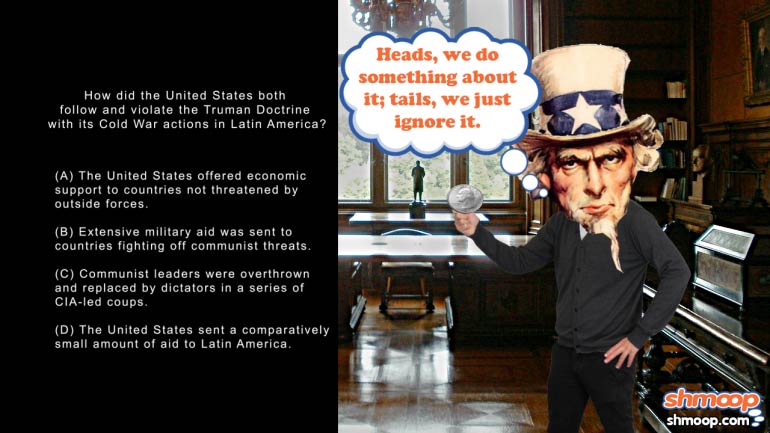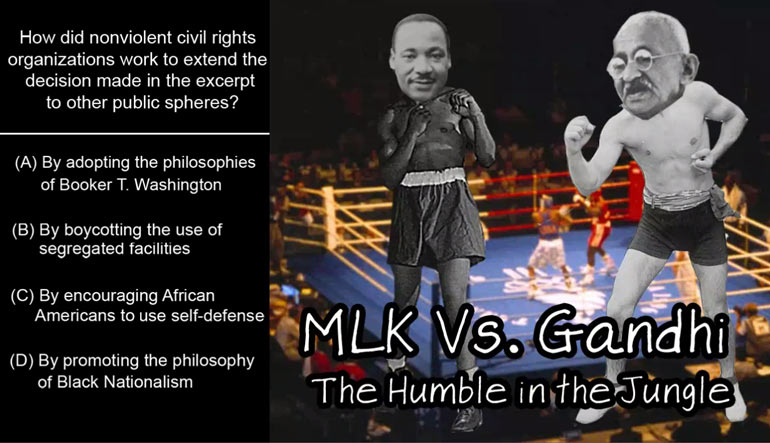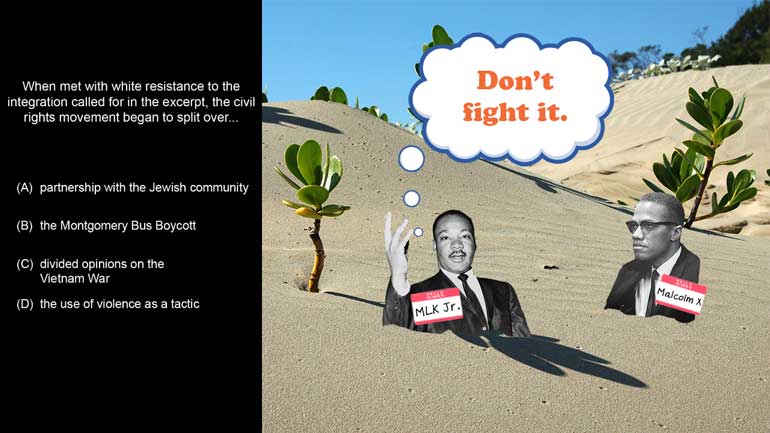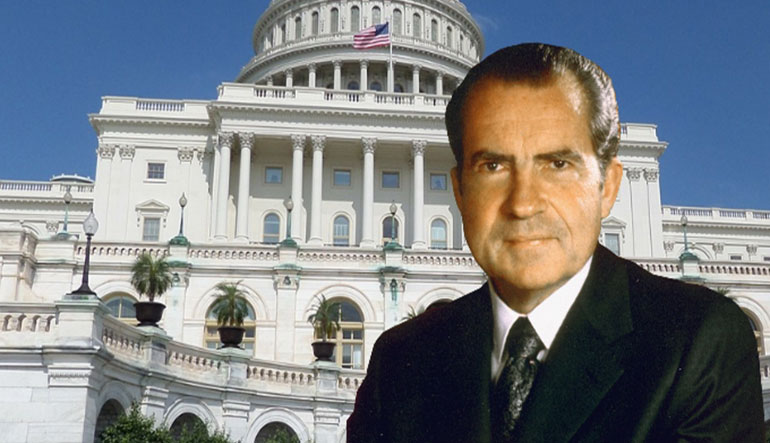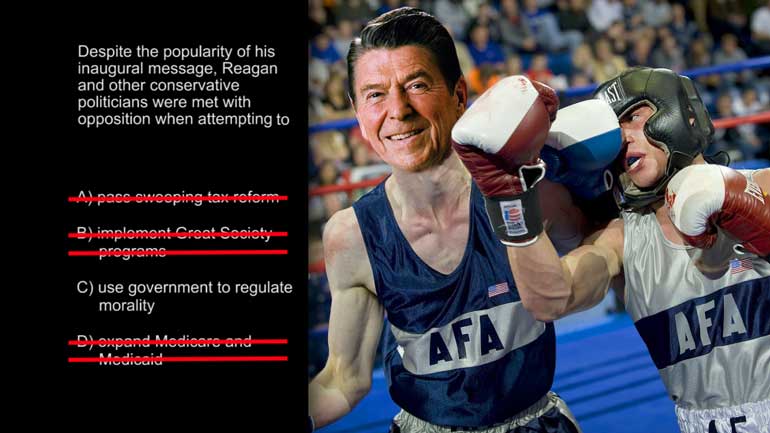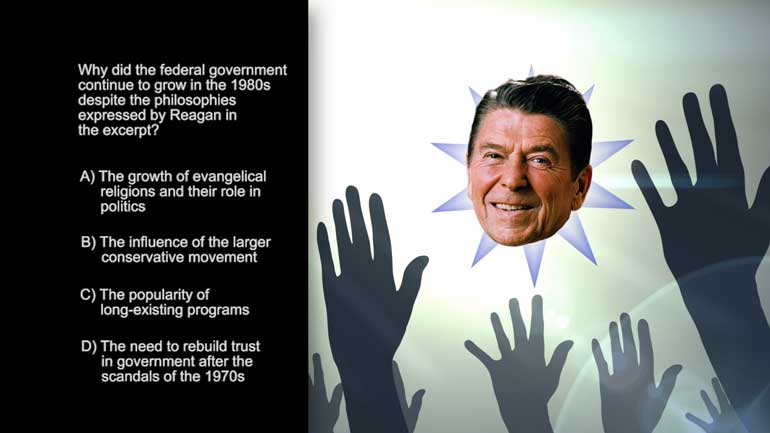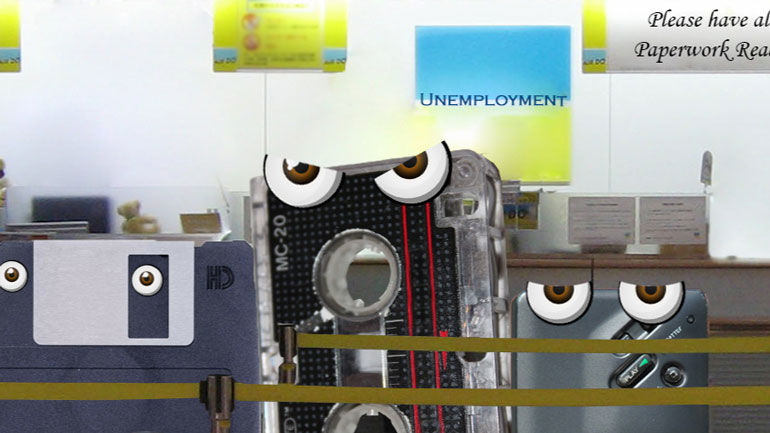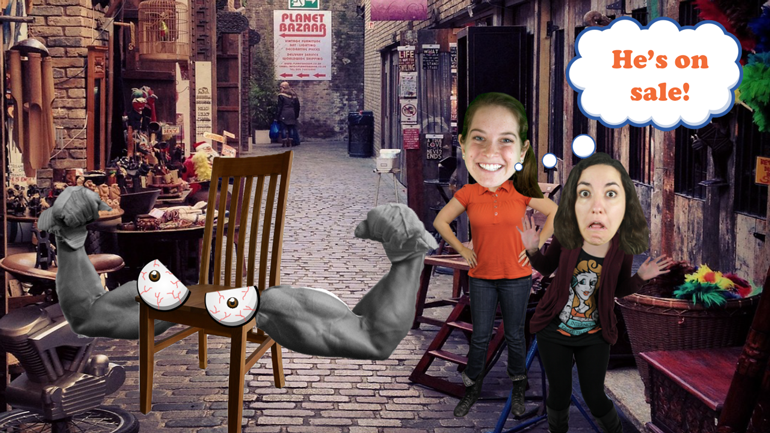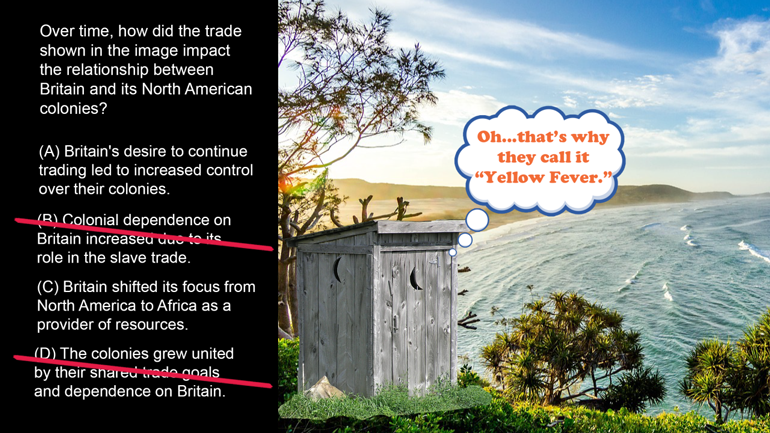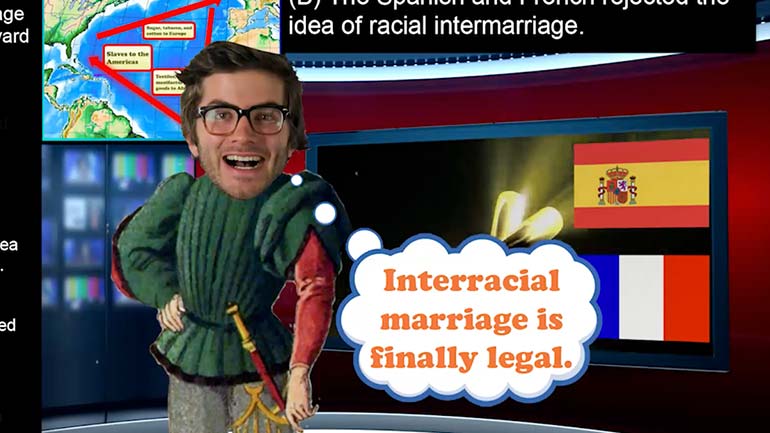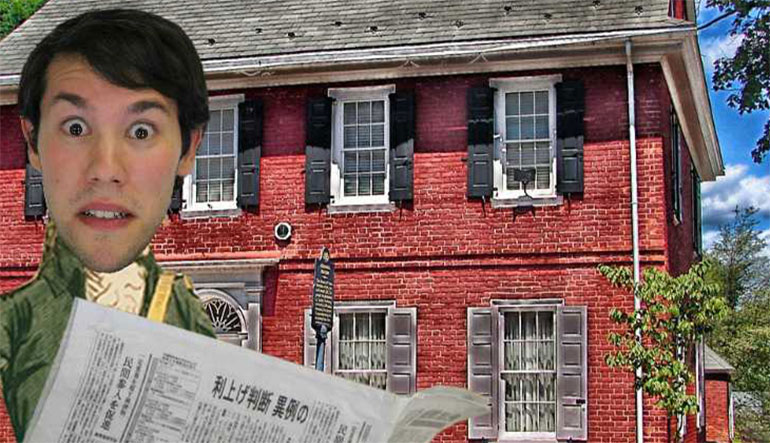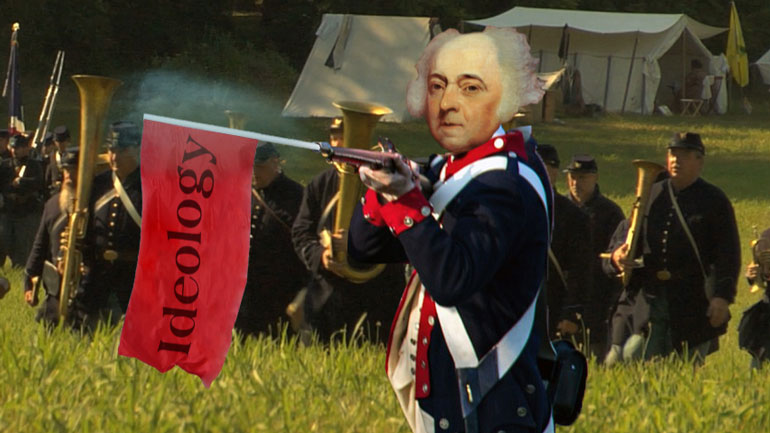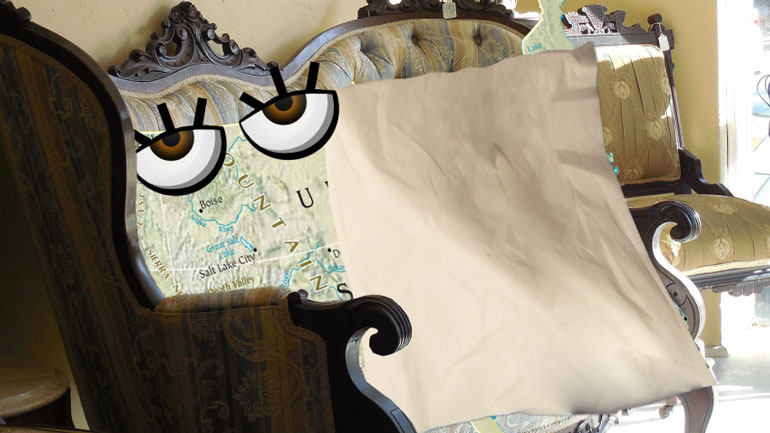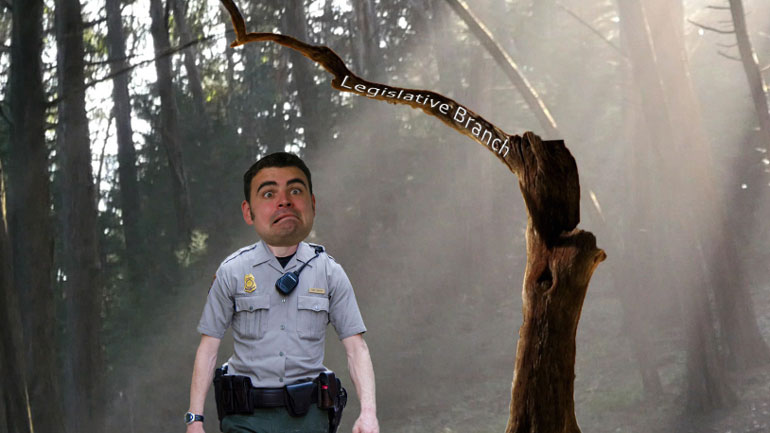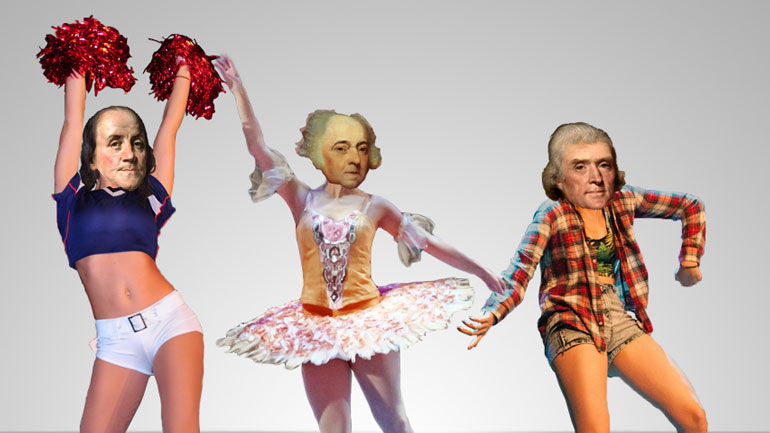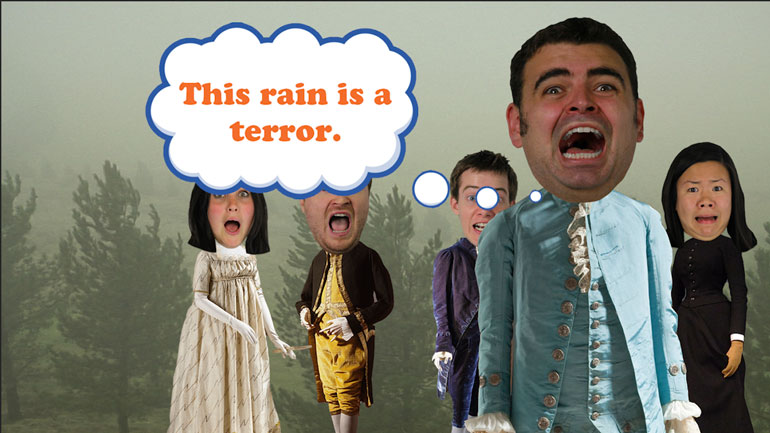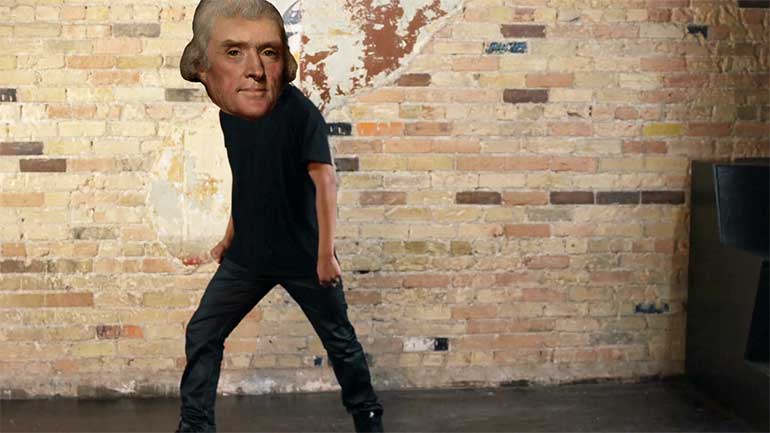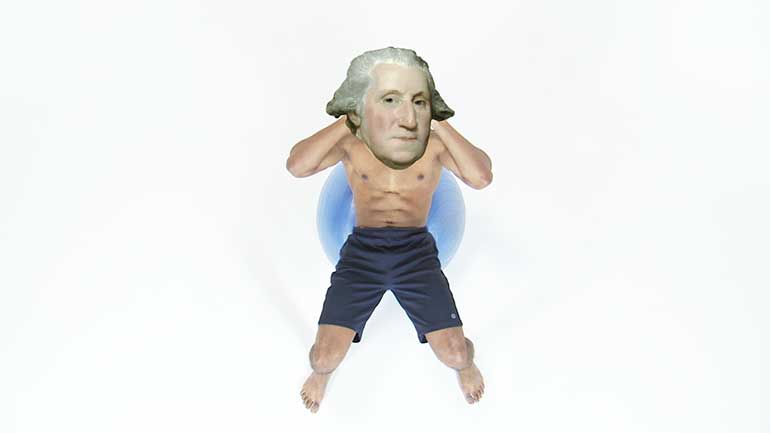ShmoopTube
Where Monty Python meets your 10th grade teacher.
Search Thousands of Shmoop Videos
AP U.S. History Videos 167 videos
AP U.S. History 3.1 Period 2: 1607-1754. Which of the following contributed most directly to the process seen in the image?
AP U.S. History Period 1: 1491-1607 Drill 3, Problem 2. The cultivation of maize, depicted in the image, also played a significant role in which of...
AP U.S. History 3.2 Period 4: 1800-1848. The goals presented in the excerpt have the most in common with which of the following?
AP U.S. History Exam 1.25 172 Views
Share It!
Description:
AP U.S. History Exam 1.25. What change to the Constitution was celebrated in the creation of the image?
Transcript
- 00:00
[ musical flourish ]
- 00:03
And here's your Shmoop du jour, brought to you by Constitutional Amendments,
- 00:08
alterations necessary to stay hip to the times.
- 00:11
Hip hip hooray?
- 00:12
What change to the Constitution was celebrated in the creation
Full Transcript
- 00:16
of the image? Right here.
- 00:18
Celebration. Hmm.
- 00:20
And here are your potential answers.
- 00:22
[ mumbles ]
- 00:27
All right. Well, the 13th, 14th, and 15th Amendments,
- 00:30
sometimes known as the Reconstruction Amendments,
- 00:33
were added to the Constitution at the end of the Civil War.
- 00:36
But this image? Well, it's asking about lucky number 15,
- 00:40
so let's see what constituted that particular Amendment.
- 00:44
Was the change to the Constitution celebrated in this image
- 00:47
A - granting citizenship to all former slaves?
- 00:51
Nope. That was the 14th Amendment. So it's not A.
- 00:54
Was the 15th Amendment responsible for B -
- 00:56
giving all women freedom to vote? Nuh-uh.
- 00:59
That was the 19th Amendment, which wasn't ratified
- 01:02
until 1920. So scratch B off the list.
- 01:05
Is the celebration in the image for C -
- 01:08
banning slavery and the slave trade?
- 01:10
Wrong again. The 13th Amendment, not the 15th,
- 01:13
was responsible for banning slavery.
- 01:16
The 15th Amendment D -
- 01:18
allowed citizens to vote regardless of race.
- 01:21
The 15th Amendment granted all citizens - well, all male citizens -
- 01:25
the right to vote. So D is the correct answer.
- 01:28
Even with this Constitutional change,
- 01:30
African Americans still faced a tough road to the ballot box,
- 01:33
especially with the enactment of poll taxes
- 01:36
and literacy tests. Unfortunately, the racist
- 01:38
pen was still mightier than the Constitutional sword.
- 01:42
[ buzzer ]
Related Videos
Ever heard of a "living document"? They eat and breathe just like the rest of us! They even walk around on their own two legs. Okay, fine—maybe t...
If the Puritans had gotten their way, religion would play a much larger role in lawmaking these days. Want to know more? Watch the video for all th...
What happened between the creation of the Articles of Confederation and the ratification of the current U.S. Constitution? This video analyzes the...
The Modernists thought the world had a lot of problems, and they were intent on fixing them—or at least talking about fixing them. Unfortunately,...
This video explains Federalism and the quest for a fair balance between state and national power. It covers the progression and compromises of Fede...

